It has already been more than a year since the 44-day war was unleashed by Azerbaijan against the Republics of Artsakh and Armenia. A war that ceased on November 9 on the basis of a trilateral statement signed between Armenia, Azerbaijan and Russia created a new reality in the South Caucasus: more than two-thirds of the territory of the Republic of Artsakh (also known as Nagorno-Karabakh) are now under Azeri occupation. Thousands of Armenians have been displaced. Russian peacekeepers are deployed in the remaining parts of Artsakh. However, even those forces seem to be inadequate to prevent the continuing abuses and human rights violations towards the Armenians of Artsakh.
Despite this and against all odds, life still flourishes in Artsakh, and individuals committed to starting anew are getting married. Moreover, it was this war that placed most of them in proximity.
The stories below tell about the omnipotent feeling of love that makes us live and create during and especially after the war.
Narine and Sergey
Narine Arzumanyan is a cardiologist from the Martuni region of Artsakh. She is currently living in Yerevan. Sergey Aramyan is a urologist from Yerevan; his roots are from Artsakh as well.
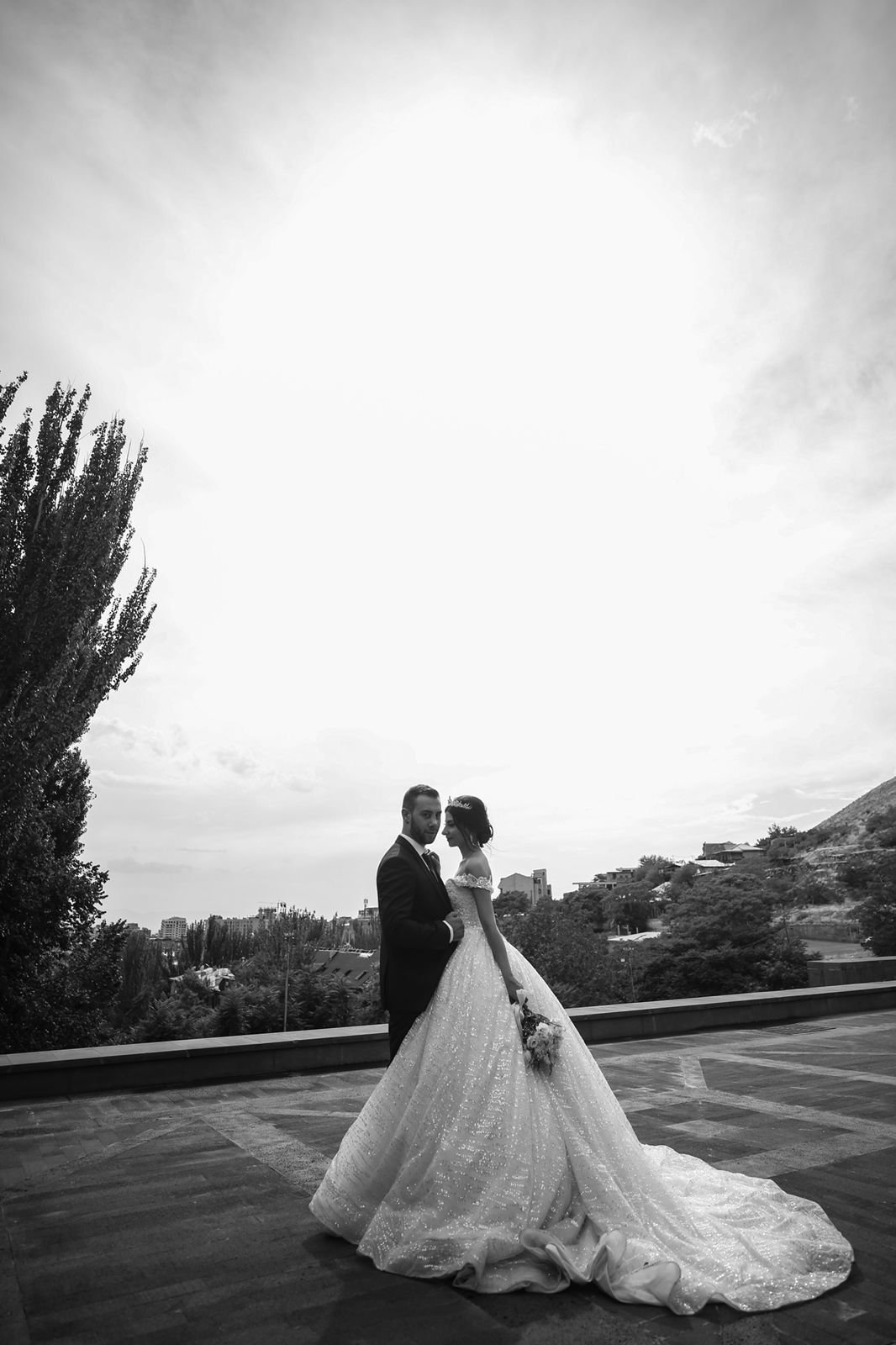
Narine: I went to Artsakh on the second day of the war together with my father, coursemate and her husband. I settled in Martuni and worked at the hospital all the time. On another day, a heavily wounded soldier was brought there by a young man, who was to become my future husband. It was later revealed that we have studied together at the same course for six years and then worked at the same hospital, but had never met each other before. Afterwards Sergey’s friend told me that when they accompanied a wounded soldier to the hospital, Sergey stated that they would be back again. His friend was surprised and wondered why, whereas Sergey told him that he fell in love. The road from Sergey’s place to the hospital was dangerous; however he managed to visit me every day by bringing some sweets for me and asking how I was feeling. I even managed to introduce Sergey to my hometown Martuni. We both started to transport wounded soldiers from Artsakh to Yerevan, and it was the road that united and connected us more. I was amazed how flexible and calm I became with Sergey notwithstanding my general strong and difficult character. We were getting closer day by day, and at the end, we realized that we had to continue our life journey together. Although we got married just 10 months after the day of our first meeting, those were months each worth 100 years for both of us. Currently, we continue postgraduate training in Moscow together, each of us with our specialization. We are planning to have as many children as possible and do everything to help our country withstand all difficulties.
Marine and Shant
Shant Charshafjian is from Glendale, California. Marine Karapetyan is a linguist from Sardarapat, Armenia.
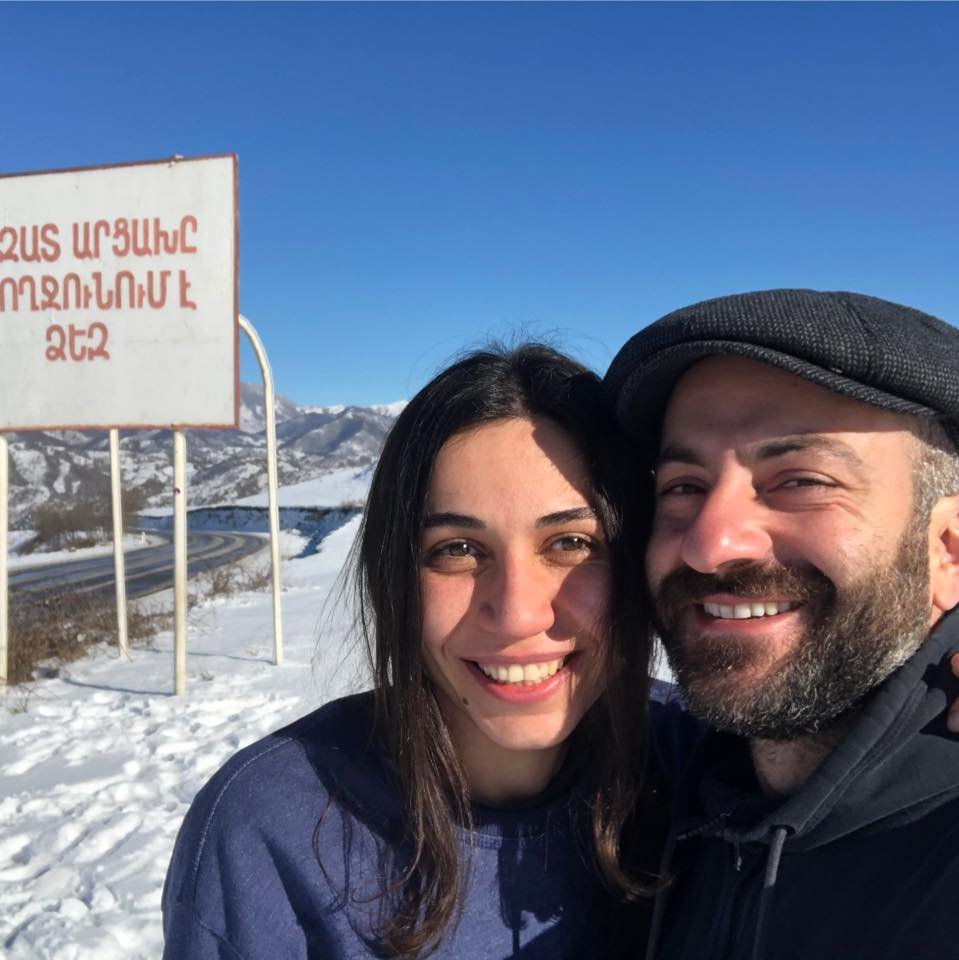
Shant: I was in Yerevan when war broke out in Artsakh. Just the day before, I met my future wife. On September 26, I was in the Tavush region of Armenia to participate in Gutan fest, where I met Marine. She was wearing a tee-shirt with an image of Garegin Njdeh (a prominent Armenian statesman and military strategist)—one of my favorite national heroes. She grasped my attention immediately, and we started to talk and discovered that we have so many things in common. On the next day of the war, I decided to confess my love to Marine as I did not know what would happen to us. So, we started to date and in the middle of October, we got engaged and went to Aghavno—a border village connecting Artsakh with Armenia. During the war, there were still people and especially children staying there at their homes, so we decided to provide them with medical and humanitarian aid. As Marine is a linguist, she started to work with the children of Aghavno. Even under the heavy shelling, she stayed calm trying to assist everyone as she could. The war ended. We went through many difficulties and challenges, and this summer we decided to get married. We moved to the Martuni region of Artsakh and are helping to develop agriculture in this area. Recently, we had a baby girl, and of course, we are planning to continue to live and work in Artsakh.
Ani and Meruzhan
Ani Poghosyan is a psychologist living in Yerevan. Meruzhan Sargsyan comes from Musaler in the Armavir region of Armenia.
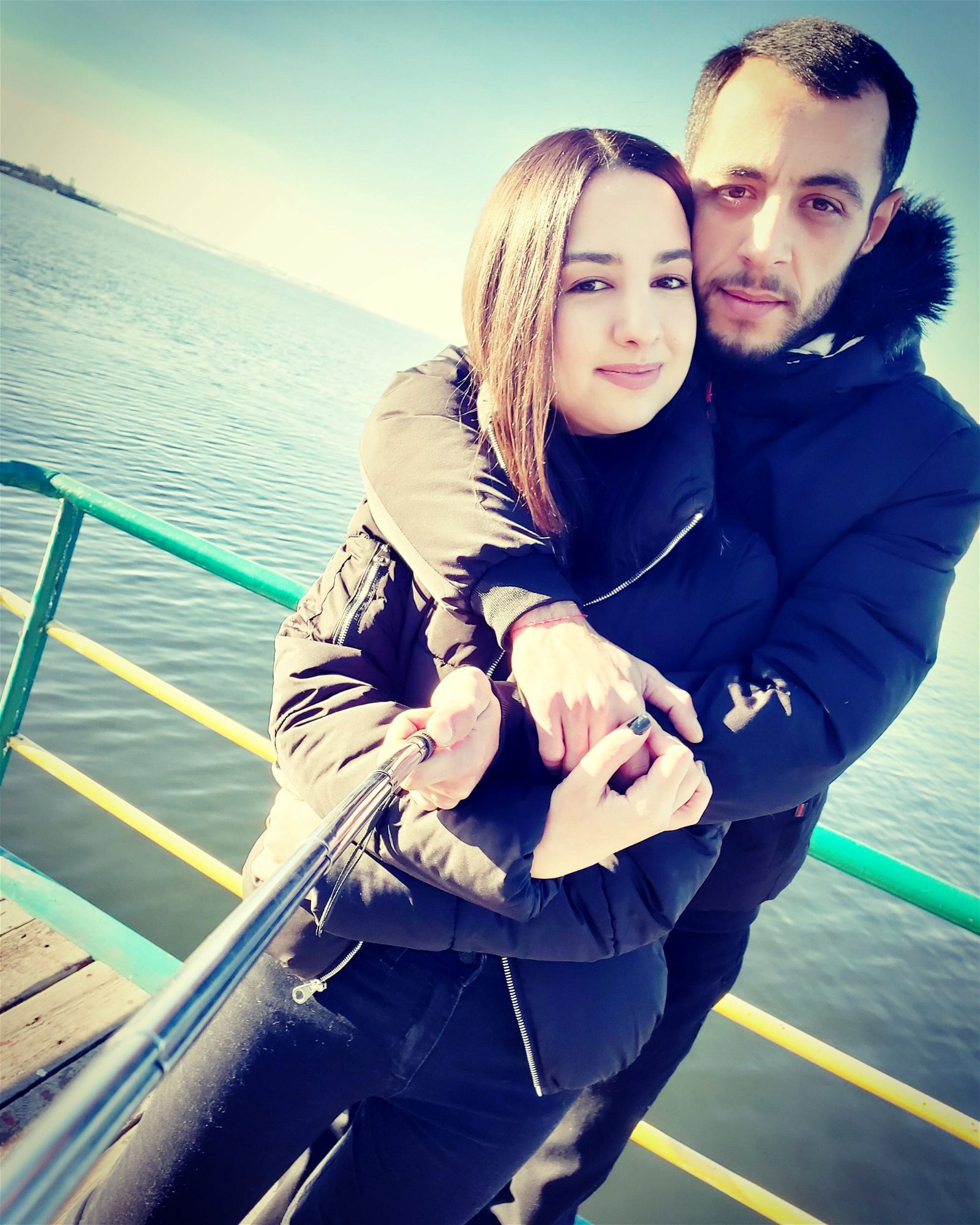
Ani: I was voluntarily working as a psychologist with the children from Artsakh during the war. For that purpose, my friends were always tagging my profile on Facebook to help people find me and get the needed help. This is how I met my future boyfriend, who contacted me and asked for help. As I was working only with teenagers, initially I refused him, but when I was told about his problems caused by war I decided to help. We were working online for a month and I was telling Meruzhan what to do to overcome all the psychological problems he had. After a month, he asked me to go out with him and assured that I became a very close person to him. Our feelings were mutual, as I was experiencing the same. It took two months to improve Meruzhan’s speech, and it is our love that helped him to recover so quickly.
After the war, something has definitely changed and that is common for 95-percent of Armenians living in Armenia. It is the feeling that you have to live here and now, and you do not have to postpone something to another day.
Meruzhan and I see our future in bright colors. I am planning to open my own center where I can help teenagers by offering them psychological aid, and Meruzhan is helping me. We are going to get engaged very soon. After that, we will marry and have children. Most importantly, Meruzhan and I are going to raise our children with love towards their motherland. We wish them to become really good individuals who know their role and mission for their homeland and have goals and objectives to reach.
Elina and Martun
Elina Balasanyan is a student from Berdashen village in the Martuni region of Artsakh. Martun Abrahamyan is from Artik city of Armenia.
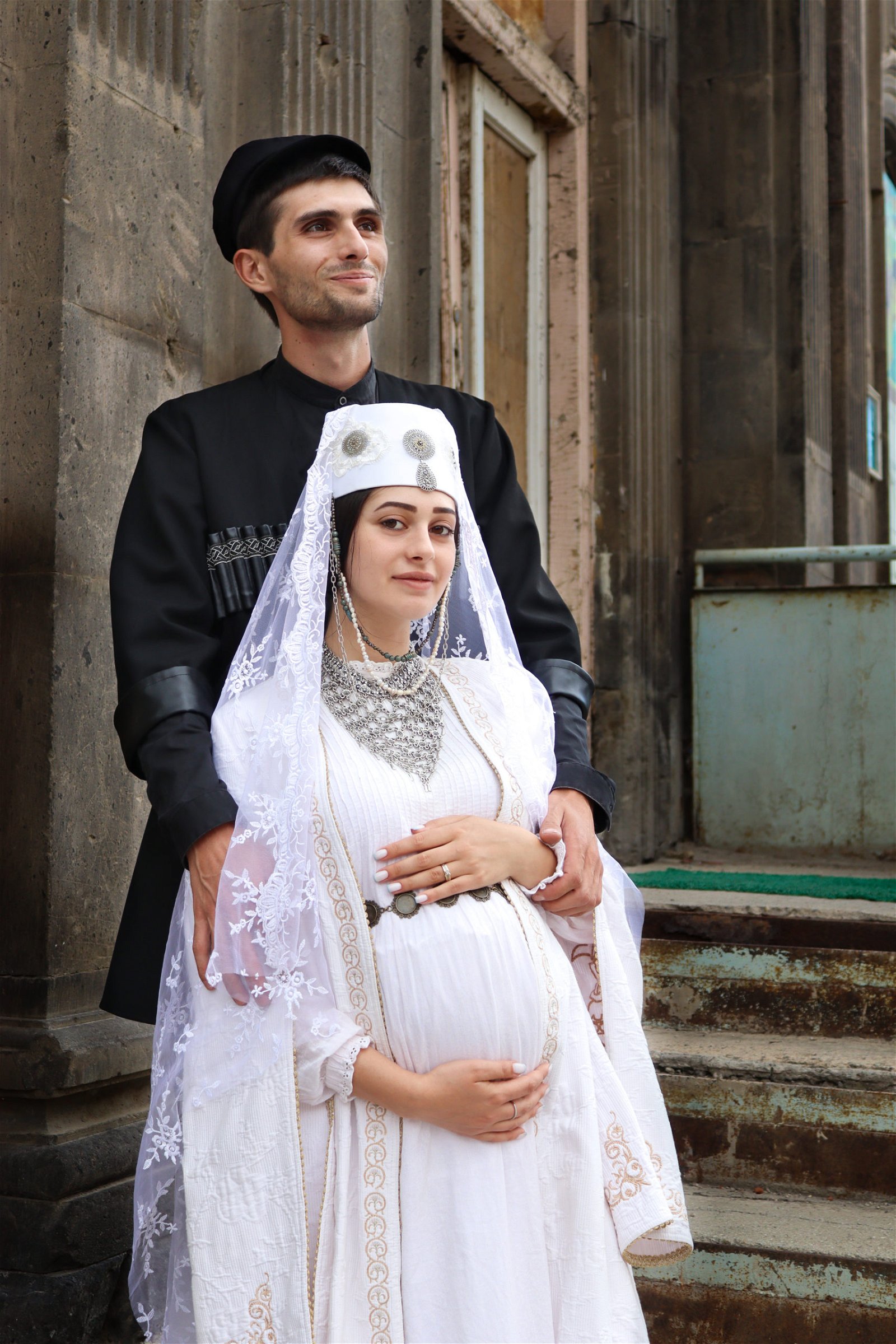
Elina: When the war started I was going to work at around 7:30. On my way, I immediately understood that something was happening, as there were some objects in the sky, but I could never imagine that it might be a war. I like hiking, and usually after work I used to go to Shushi to find peace in nature. That day was not an exception, and I packed everything I needed – warm clothes, water and other stuff. My sisters were in Stepanakert, but my parents and my little brother were in the village. I managed to go to my village and help my parents and other people to flee to Stepanakert where they found shelter at the Holy Mother of God Cathedral. (The famous photo from the recent Artsakh War where a young lady is reading a book for children in the bunker was taken there.) I was taking care of elderly people and children who were in the bunker at that time. But when my mother got sick, I had to leave for Yerevan where I started to help displaced individuals and met my future husband who was also helping others. It was love at first sight from his side, whereas the only thing on my mind was the future of Artsakh and my family. After a few days, Martun approached me and told me that everything is very serious, and we have to behave like mature people. This is how our love story began. After the ceasefire, on 13 November, we both returned to Stepanakert and got engaged in the same cathedral where I was seeking shelter during the war.
The war made us think about eternal things. We were happy that we did not lose each other but found each other instead. We should appreciate each minute given to us. Martun and I became parents in September. It is a blessing to find love and build a family in this mess. We are planning to move back to Artsakh as soon as possible and continue to live there.


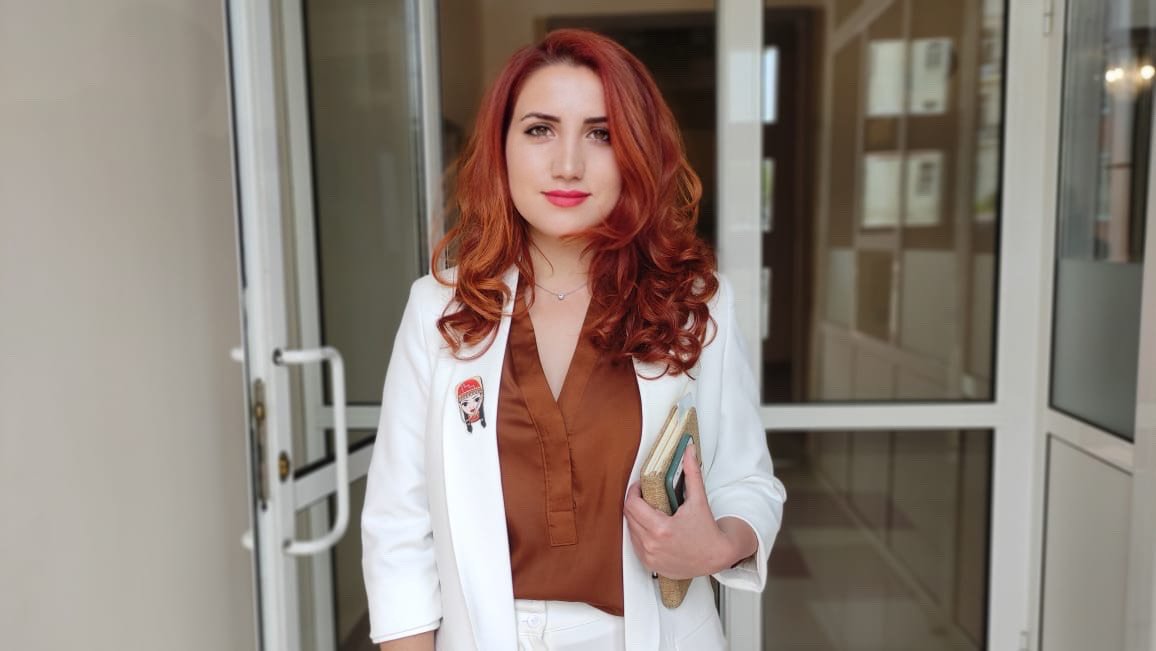
Be the first to comment